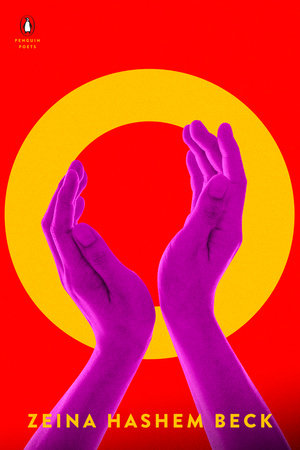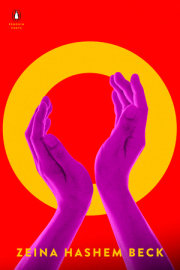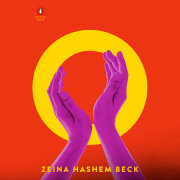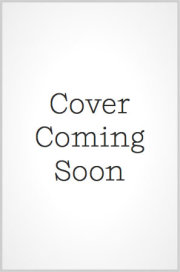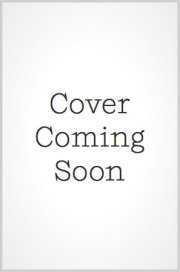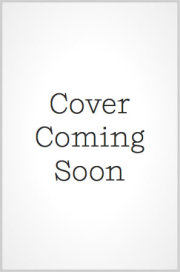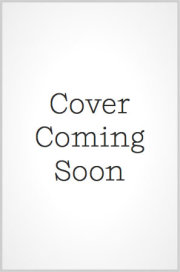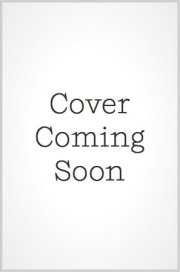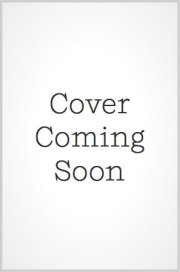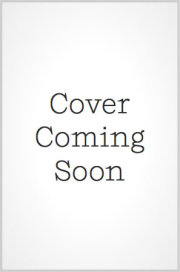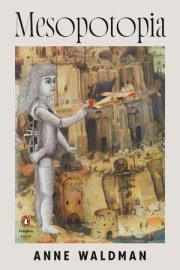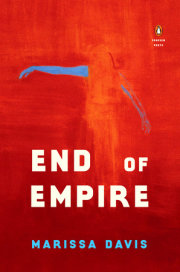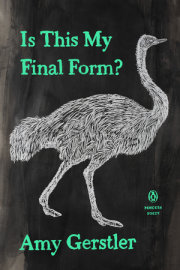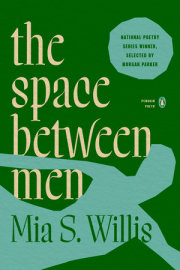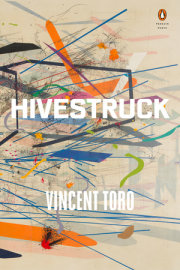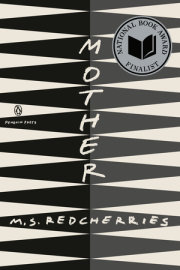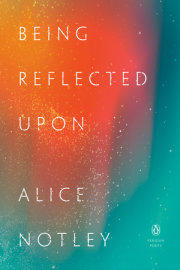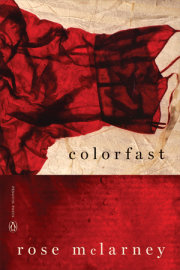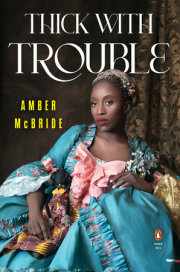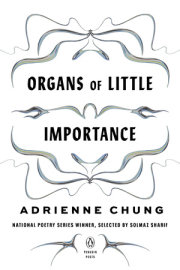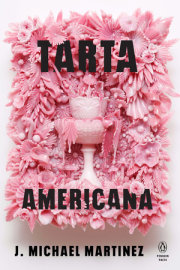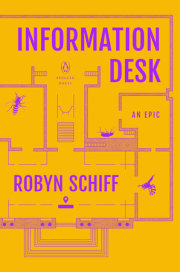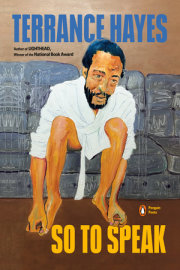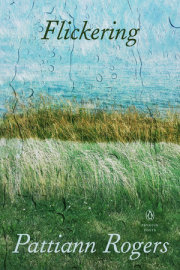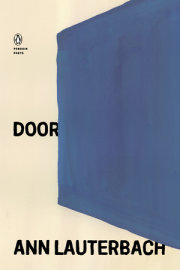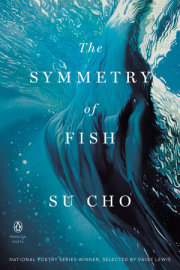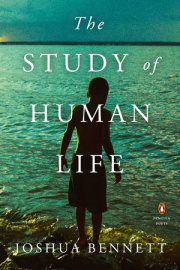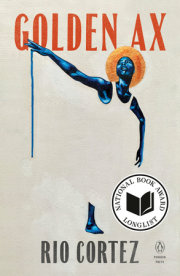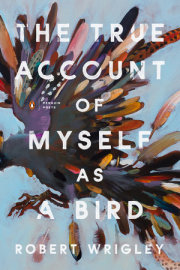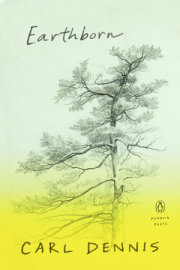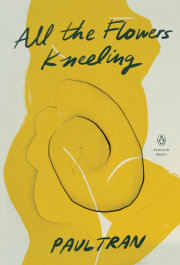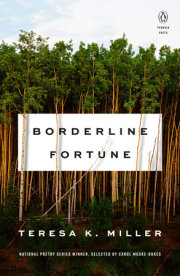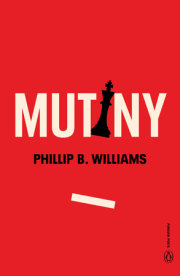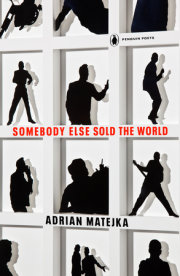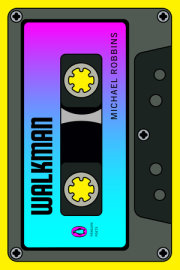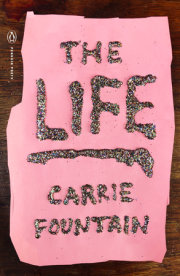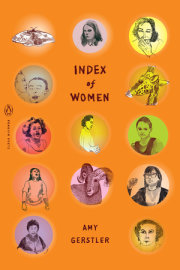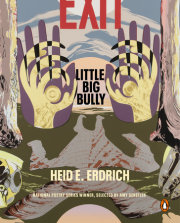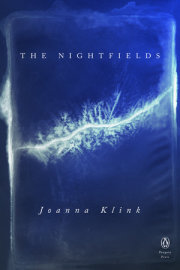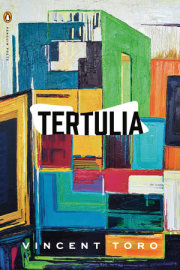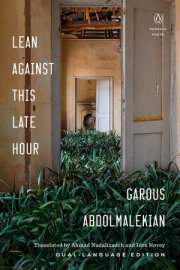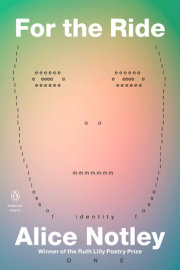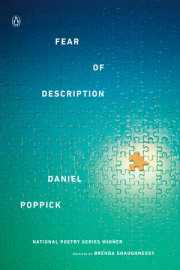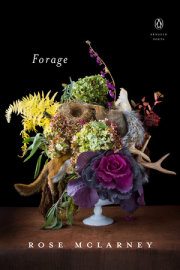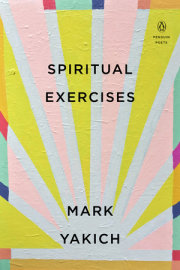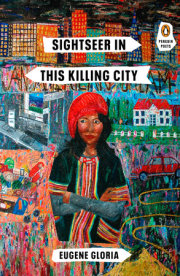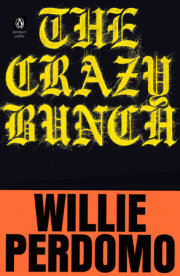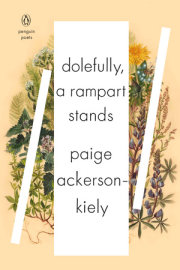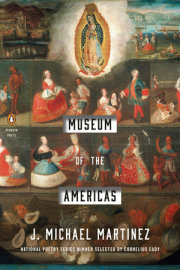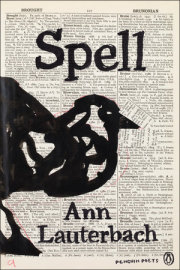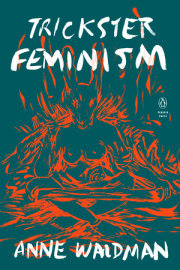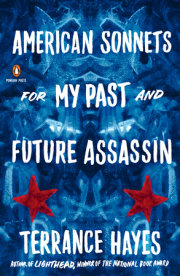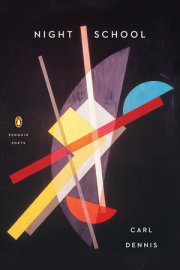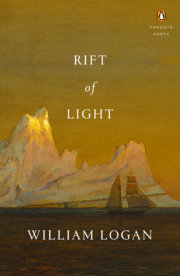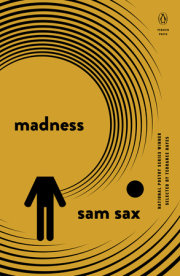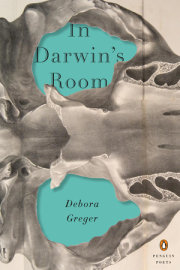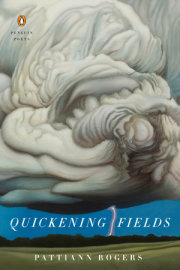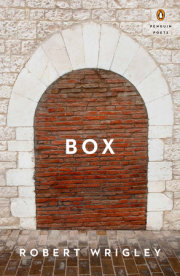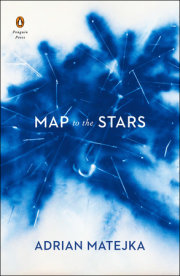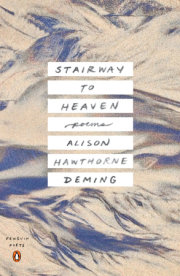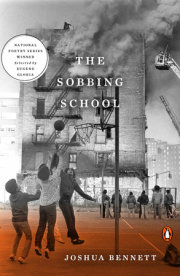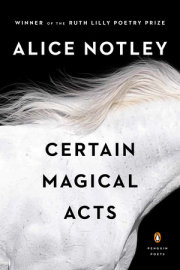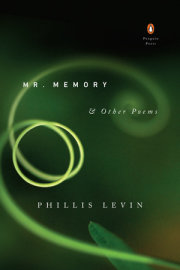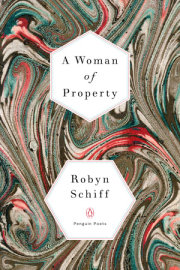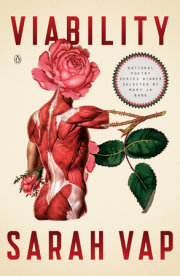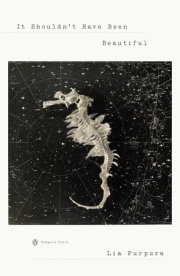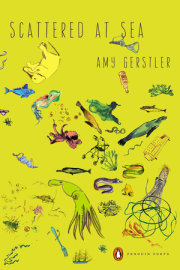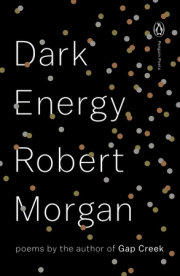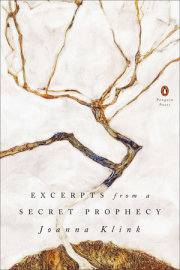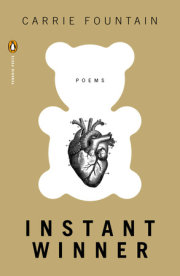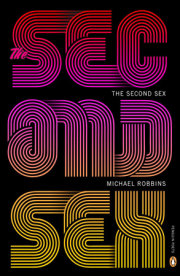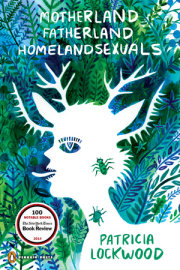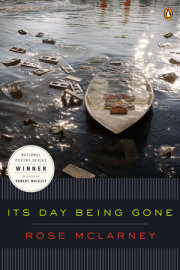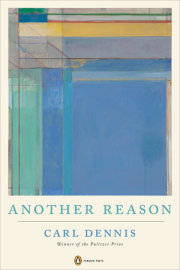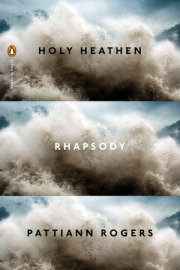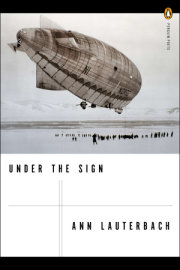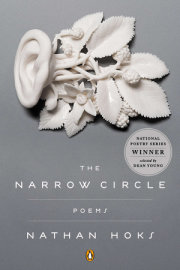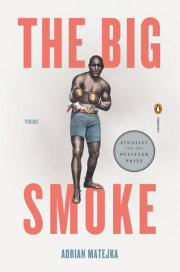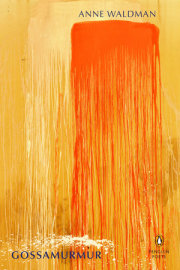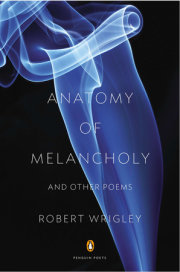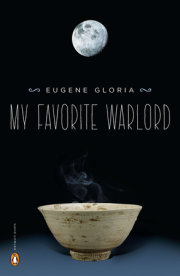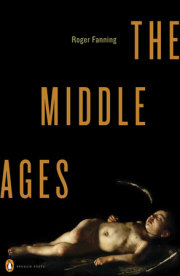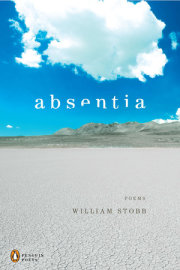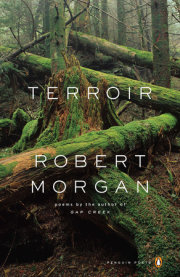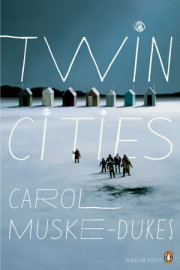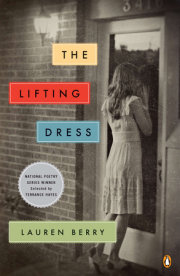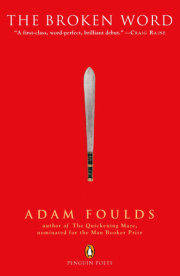There, There, Grieving
Where are you from?
There.
Where are you headed?
There.
What are you doing?
Grieving.
-Rabia al-Adawiyya
Little brother, we are all grieving
& galaxy & goodbye. Once, I climbed inside
the old clock tower of my hometown
& found a dead bird, bathed in broken light,
like a little christ.
Little christ of our hearts, I know
planets light years away
lie under our tongues. We've tasted them.
We've climbed staircases saying, There, there.
Little brother, we are all praying. Every morning,
I read out loud but not loud enough
to alarm anyone. Once, my love said, Please
open the door. I can hear you talk. Open the door.
Little christ of our hearts, tell anyone
you've been talking to god & see
what happens. Every day,
I open the door. I do it by looking
at my daughter on a swing-
eyes closed & crinkled, teeth bared.
I say, Good morning good morning you
little beating thing.
Little brother, we are all humming.
More & more, as I read, I sound
like my father with his book of prayers,
turning pages in his bed-a hymn
for each day of the week, a gift
from his mother, who taught me
the ten of diamonds is a win, left me
her loose prayer clothes. Bismillah.
Little christ of our hearts, forgive me,
for I loved eating the birds with lemon,
& the sound of their tiny bones. But I couldn't
stomach the eyes of the fried fish.
Little brother, we are always hungry.
Here, this watermelon. Here, some salt
for the tomatoes. Here, this song
for the dead birds in time boxes,
& the living. That day in the clock tower,
I saw the city too, below-
the merchants who call, the blue awnings,
the corn carts, the clotheslines, the heat,
the gears that turn, & the remembering.
ode to the afternoon
my friend tells me she's been running
in the cemetery in the afternoon
she calls it just-a-garden-really
first i am afraid & then i am afraid
everything is cemetery & garden
my late uncle's flower shop
my daughter learning to fold a paper into a boat
sea salt marriage dawn old french music
this vertical line digging deeper
into my forehead each morning
that bicycle in the city tied to a street post
with flowers & a note to the girl who rode it
when i was a little girl i wanted to bury the afternoon
when longing was long & my parents slept & slept
i stood in the corridor & repeated i i i i i until i
flickered in & out of myself some days i even
threatened to fling my body from the balcony until
my brother with such calm looked at me
dangling from the railing my head thrown backward
& explained you don't own your soul
it belongs to God only He can decide
i stood in the corridor i stood on the balcony
i stood in the desolate afternoon & repeated
because what is repetition
if not a question the way mom every day
with her hair dryer with her grocery list
with her buying this shawl & that
is asking what have i done what have i done
the book says we will see clearly
when the drunkenness of death descends
my uncle saw a man & a woman
standing by his hospital window
& asked his wife who they were
my father with his prayer beads
with his cigarette gestured to the driver
taking my uncle to his grave
to circle back & pass
by his flower shop my father
with his few words said
one last time so he
by he my father meant both
his brother & himself
my uncle taught me to sing que sera sera
he said say it what will be will be
i still dread the afternoon & still ask
will i be pretty will i be missed
& i still haven't been
to his grave but have driven
past his flower shop again & again & again
the way on the night he died i drove beneath bridges
& saw him on each one & waved
Ghazal: Hands
Do you pine for photograph-worthy limbs, slender hands?
I asked about the soul & mom said God has tender hands.
I worried I'd need a ladder to climb up to heaven.
Or a strong grip. Or an ancestor to send her hands.
I've watched them shatter window glass. I've watched
them knead flour, water, grief. Render, hands.
Their earthly veneer tells time & the weather. Show us
how love. How green. How remorse. O calendar hands.
What medicine for longing? Salt water lifting
the breathing body. Sun, skin. Scent of lavender. Hands.
The child lets go, charges out to the sea alone. Come
dark, she drifts to her mother's touch, bends her hands.
The mother recites into the child's palm: O bird how
to eat you? Tickle. O apple tree leaves. Remember hands.
If you wave goodbye. If you wave come back. If you twirl
enough, will you learn to welcome surrender, hands?
Pilgrim
I see you collect the scatter of houses
that abandoned you. Friend, I see
you lick the backs of photographs
like stamps & still they fall from
your shoulders. In this one you are young-
before countries & children. Sit down.
Like you, I collect what worries me. Fatherlands
are ominous & comforting like the eyes
of those who love us, & my city is a leash
that suffocates me the farther I stray
from the Mediterranean between the buildings.
The swing sings its rust in the wind.
Neither water nor stone will do. I've given up
cigarettes & libations, I separate the jars
on the bookshelves-these are for the ash
& these for the pickled cheap icons.
No matter how much vinegar I pour,
the Marys never close their eyes. No matter
how many times dawn is slaughtered,
I cry when the minarets crow.
daily
my little country is not enough
here the rain
is the peasant's god
& the driver's curse
no remedy but
antidepressants & prayer
here even the atheist prays
for prayer is a sport
like smoking in the morning
& prayer is an art
like singing in mourning
& language without
god lacks longing
& everyone knows the only answer
to all difficult questions is
to give thanks
my little country is not enough
i abandon it every day & i return
then abandon it again
carrying, always, bags of pine nuts
& a tin of olive oil in its wooden coffin
so the airport security would let me through
(put anything in a coffin & they'll let you through)
my little country is not enough
i lose it every day on purpose & weep
i whisper come back follow the bread scent
follow the lemon & minefields
follow the wailing of the ambulance
follow the songs of the dead & the living
i lose it every century every hour
& it returns every exile saying remember
these vagabond days are old are new
like the poet's love for balconies
triptych: you & my country & i
. . . . . .
-
under the kitchen light have you noticed my lipstick
your head full of whiskey we chant / biladi / my countries how 70s
your sweat how you melt for / baladi / my country how predictable this hurt
how your chin hangs lower is my country neither poppy nor earth
neither young nor old multitudinous or just your daily
turning turning it is infinite this longing
inside this unforgiving is it a trench this tongue
consider is only masculine no both are possible
laughter & the evening is feminine because inside the rib cage
the humming what woman doesn't know the burning
of the refrigerator the bodies the bodies the crying
& all this talk within Without
about what we inherit the body the body the bread
& what land now i wonder is just spill
take off your shoes & your toes & my nails
aren't they beautiful aren't they beautiful aren't they beautiful
Dear white critic,
If I told you I do not choose to write
about war & the children, would you believe me?
-
I'm tired of knocking on the doors of empires.
If I told you these words are
not in English, would you believe me?
.
Though & because it confuses the tongue,
let me repeat this: the flowers are ours the flowers
are ours the flowers are ours.
-
Yes the earth turns & there is time between us,
but my universe is neither corner
nor as dark as you've called it. Do you believe me?
.
:
One of the boys, I
climbed over the school wall & jumped
into the olive grove.
.
I gifted my first love a green pit.
I'm tired of metaphors about peace.
I prefer dark chocolate in the morning,
& a good window.
!
Today I got a massage & painted
white petals on two red nails.
Do you believe me?
.
I don't know if I envy God his existence
outside of time, or if he envies my angst
inside the body.
.
If I told you I'm not that other
Arab poet you've read, would you believe me?
Do I thank you for your interest?
Do my names tire you? Good.
My cities are cities & my singers are singers.
Go google.
This is the first & last poem I speak to you.
.
Yes I believe in bridges.
If reading maps didn't bore me,
I would have learned it.
.
Sometimes I read the horoscopes
because I love my horns.
.
Goodbye now.
I banish I banish you from these lines.
.
Everything Here Is an Absolute
Bar Farouk, Beirut, 2016 perhaps
Look at where this nostalgia has brought us. We go down the stairs
& order frozen margaritas. It's been years since
we've lived here. The waiter shows us
our table, hopes we don't mind two American boys
sitting with us. There's no space for them elsewhere in this
cabaret called Metro in a capital without metros.
We say we don't mind. We are used to this city of small spaces
into which everything fits. The foreign students are our age
about a decade ago. They tell us their names & I decide to call them
Ahmad & Faysal. They agree. As the performers go onstage,
as the songs & smoke rise, we raise a toast & Ahmad & Faysal smile
& clap nonstop. They've even learned the Arab shoulder shimmy.
Once I've margarita-ed enough I start explaining
song lyrics-She's warning him he will regret & it's no disaster
if he leaves, & yes motor is pronounced motore & suddenly
I discover I don't really know who Zayn al-Abideen is
though I've been singing for him all my life. Yay yay yay
needs no interpretation. Neither do the colorful costumes
& feathers & all this going back in time. I want to shout
no one eats hummus with carrots, & no one calls this
pita bread, it's just bread, khobz, because everything here
is an absolute. Faysal says thank you & I remember
one expression for thank you is May your hands
be safe & sound. Then I ask, Doesn't Beirut
remind you of New York? His silence is polite,
to which I argue there are no fire escapes here,
but there could have been. Some cities burn faster than others.
I Beiruted East Houston at first sight & my friend
disagreed & said streets were making me delirious again.
What I mean is if you write your name on a wall & find it
gone, you say, My name has left. Would you feel abandoned?
Would you trace it again? What I mean is there are songs
where the fallen don't have rope enough to climb out of wells,
& there are songs where lovers return when the night deepens.
Revolution Song
For Lebanon, October 2019
With raised fists, with floods of fury, with ululation,
with forbidden song, with the 8:00 p.m. clatter of pots and pans,
with heartbreak, with memes, with rapture, with hands, we call this revolution.
How you laugh, how you march,
how you rest, how you run, how you get caught
in your dangerous hope. No one can wall this revolution.
And love is difficult, and love is divine. And if you must
have God, let it be love. Let it be love with its toil and terror,
let it be love with its prophecy and mess,
let it be love with its rise and fall. This revolution
is now like our bodies, is eternal like dust. Is on balconies, is on screens,
is in beds, is on streets, is in the mind, is in the mind, is in the mind,
is in the breath and the eyeball, this revolution.
Praise the candle flames and the tire fumes
praise the graffiti and the broken glass
praise the names of cities and villages
praise the old man who leans on his cane and chants
praise the young man who pounds on the wall (is he crying?)
praise the detainees who won't be beaten into silence
praise those who wait for them under the rain
praise this October birth, every month be October,
every year, every ache and balm be October,
praise the dancing and the sweat and the tired feet
praise the swearing and the red flare and the rage
praise, praise it all, this revolution.
Close the roads and open them. Occupy the streets-
bring the tires, the sofas, the drums, the blaring cars.
Close the dead palaces of power and resurrect
the abandoned places, the squares, that infinite
country inside you. Close the roads and open them.
Close the classrooms and open the tents,
bring vinegar and cloth, bring your hurt and your tongue,
let it wreck and awaken and enthrall, this revolution.
The name is thawra, and thawra is woman. The woman who kicked
the thug in the gut, the woman they came for with sticks,
the woman they came for with law,
the woman who fed and the woman who prayed,
who kissed her lover on the street, who steadied her child on her waist,
Copyright © 2022 by Zeina Hashem Beck. All rights reserved. No part of this excerpt may be reproduced or reprinted without permission in writing from the publisher.

